Movie review: 'Barbie' has fun and depth
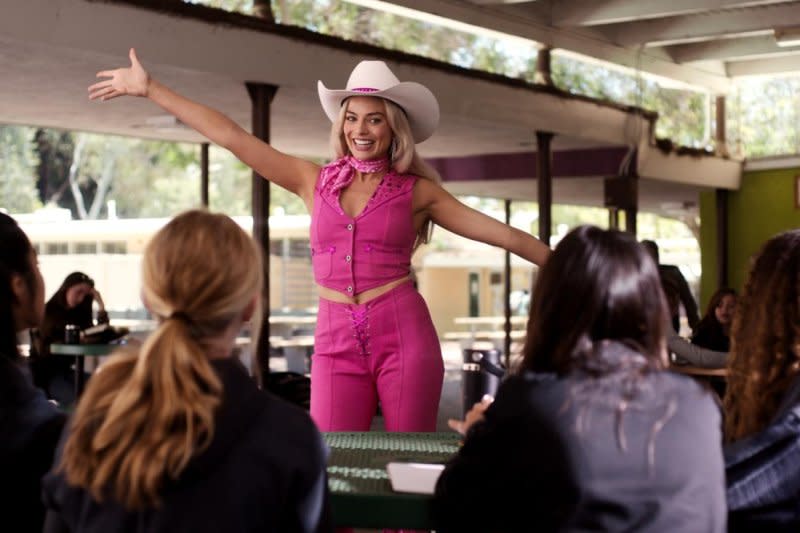
LOS ANGELES, July 18 (UPI) -- For any cynics wondering how they could make a movie out of Barbie, director Greta Gerwig has the answer. The film, in theaters Friday, uses the very concept of Barbie to make a poignant statement.
A narrator (Helen Mirren) explains that Barbie Land is the world inhabited by Barbie dolls that reflects the fantasy of the children playing with them in the real world. The Barbies think their positive messages have solved feminism in the real world.
Barbie (Margot Robbie) brings down the vibe by questioning her mortality. Real world thoughts keep intruding on Barbie's perfect life, so she travels to the real world to meet the human who is playing with her, and Ken (Ryan Gosling) tags along.
This is a clever take on growing up as seen through the point of view of the doll itself, like Toy Story and The Lego Movie. Barbie complicates this paradigm with the broader societal woes plaguing women.
As soon as they arrive in real world Los Angeles, Barbie and Ken experience toxic behavior. Barbie finds herself ogled by strangers, but Ken loves the attention, partly because he can sense he's protected in that power dynamic.
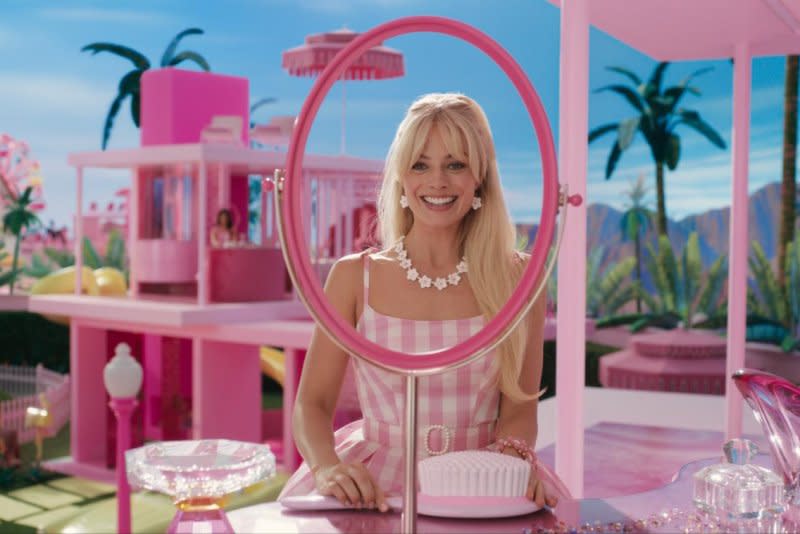
Ken discovers he loves the patriarchy because he comes from the only world that actually puts men second (and it's fictional). Meanwhile, Barbie finds that even teenage girls don't like her anymore because she represents, among other things, impossible beauty standards and capitalism.
The FBI alerts Mattel about the escape from Barbie Land. The mechanics of how exactly our worlds crossed are less important than the commentary it provokes, and the film leaves it ambiguous whether Barbie Land is an alternate universe or completely imaginary.
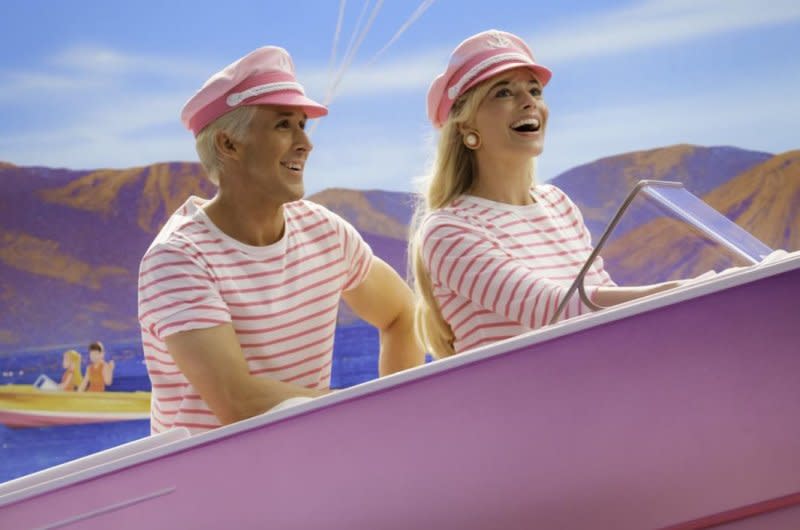
Mattel headquarters is portrayed as a childlike fantasy world. It is an oppressive grid of cubicles with an elevator that only goes "all the way up."
Underlying it, though, is that a boardroom full of men are deciding what to sell to girls. Their superficially empowering dolls are just that -- accessories and gimmicks.
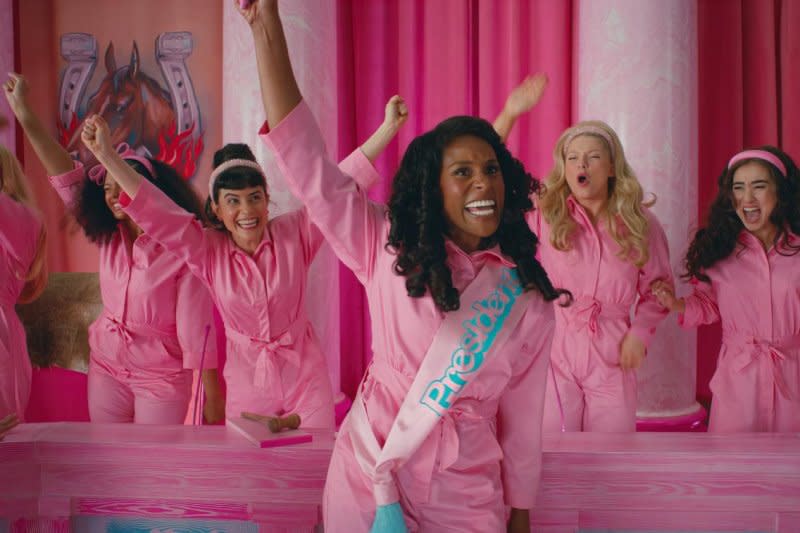
Barbie meets a Mattel employee, Gloria (America Ferrera), who helps her restore balance to Barbie Land and make some impact on the real world. The message "even if you can't make it perfect, you can make it better" is the healthier way to inspire, not the manufactured ideal.
The film also defends Barbie. Even a doll has to be everything for all women, and that's a lot to ask of a $15 piece of plastic.
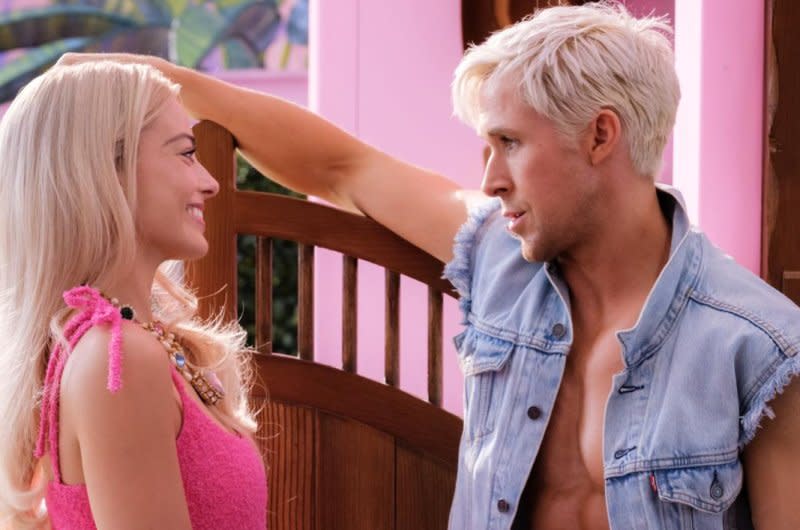
The fact that Gerwig got corporate approval from Mattel and Warner Bros. for this script, which she co-wrote with Noah Baumbach, is even more impressive than the cleverness of the execution. She must be an even better negotiator than she is a director -- and she's a great director.
Barbie is a film with a point of view and an aesthetic to match. The production design created Barbie Land as a full-size pink world. Like Barbie dollhouses, mirrors have no glass and showers have no water.
A full-sized play set opens up actors to perform scenes in. The sets are intentionally artificial, like toys, but they were constructed. They're not digital backdrops.
The actors embody the nature of a doll with which a child is playing. They commit to the childlike absurdity that this world, the beach and the dream house are the most important things.
It is a diverse Barbie Land, too, in which Black people, Asian people and people who use wheelchairs are included as Barbies and Kens. Collectors will appreciate all the references to the many obscure varieties of Barbies.
Yes, it's all a riff on the Barbie toyland, but it is not generic. So-called original movies rarely commit to such a stylized environment, let alone execute it so well.
These are big concepts for any movie, let alone a film about a children's toy. Bravo to Gerwig for sneaking them into a summer studio movie.
Fred Topel, who attended film school at Ithaca College, is a UPI entertainment writer based in Los Angeles. He has been a professional film critic since 1999, a Rotten Tomatoes critic since 2001, and a member of the Television Critics Association since 2012 and the Critics Choice Association since 2023. Read more of his work in Entertainment.

